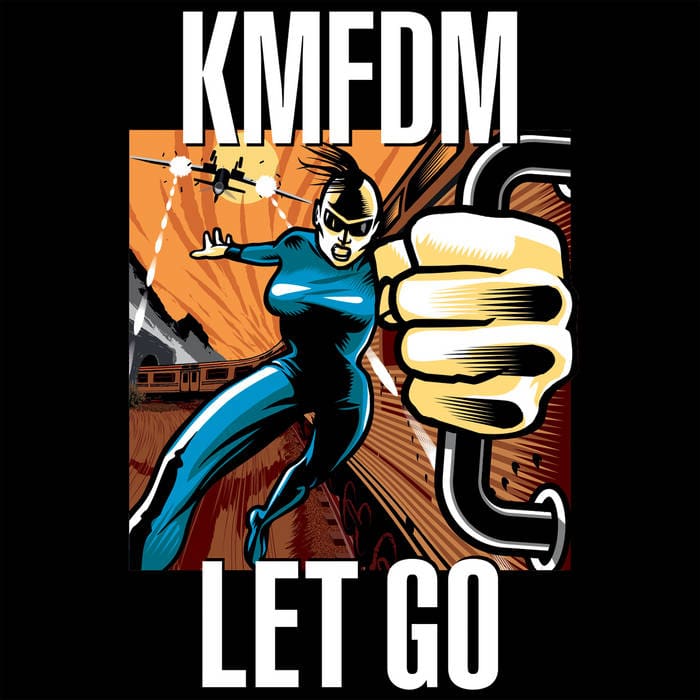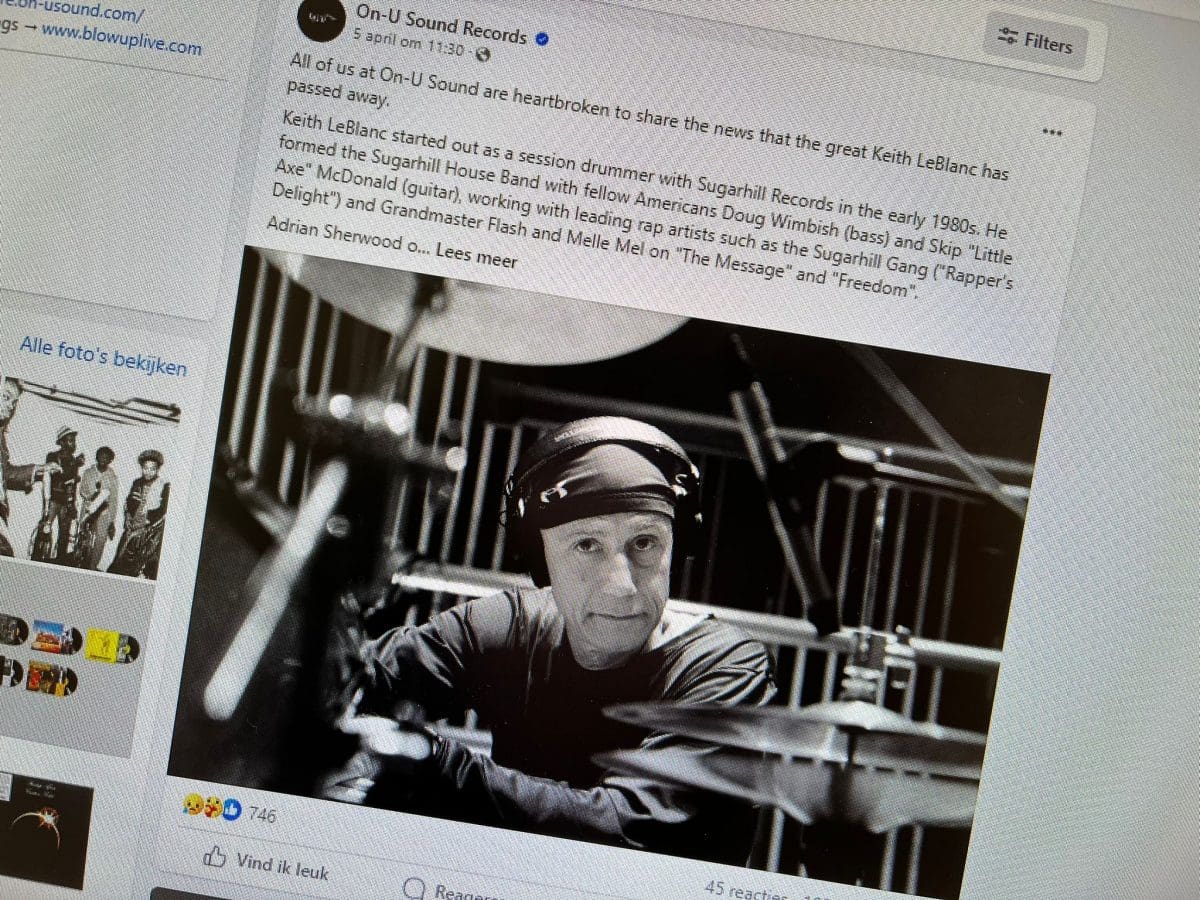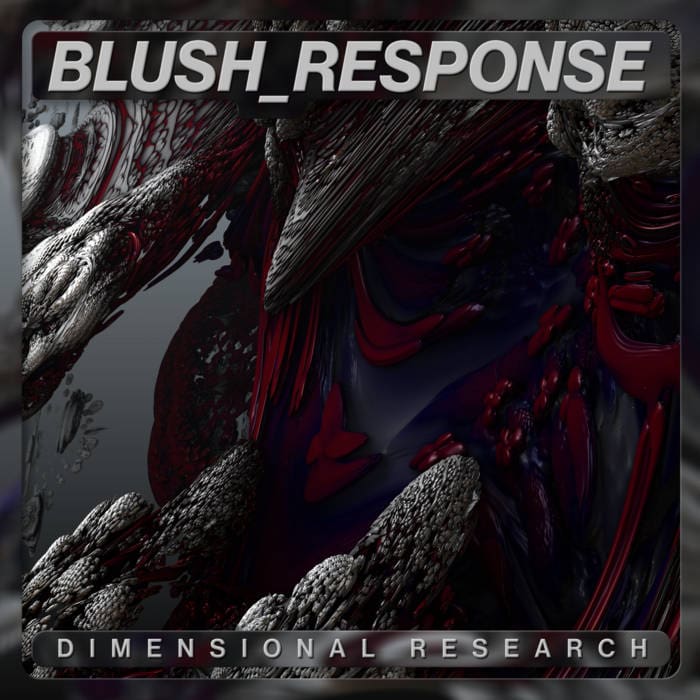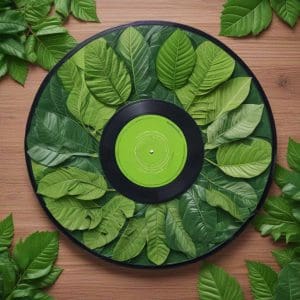‘Click Interview’ with Blush Response: ‘Music Streaming Is A Travesty’
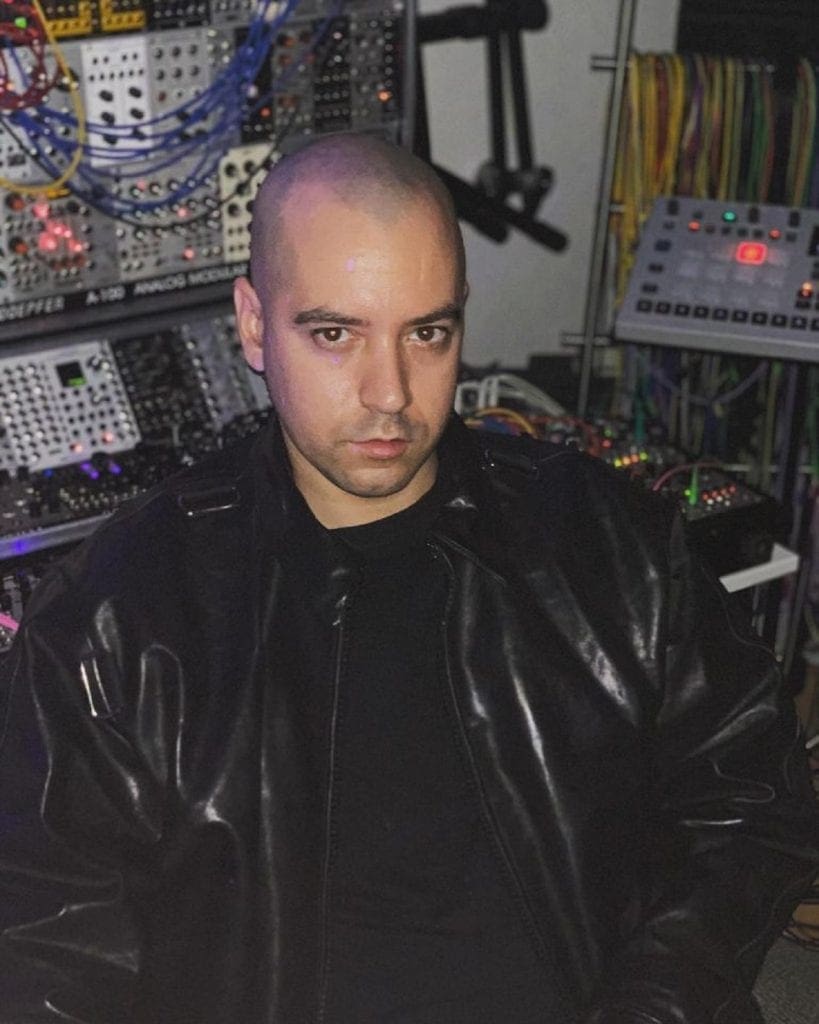

BLUSH RESPONSE is terrorizing the underground scene for the last ten years. Set up by Joey Gonzalez, the American moved from New-York (USA) to Berlin (Germany). He released a considerable number of productions on labels such as Sonic Groove, Ant-Zen, Basic Unit Productions, Aufname + Wiedergabe ao, but recently decided to set up his own label Megastructure_ to unleash his newest album “Void In”. This production is a complex and sophisticated work, mixing different genres like Experimental-, Industrial- and Techno music. The album is hard to catch, but clearly revealing the impressive skills of this sound architect.
(Courtesy by Inferno Sound Diaries)
Q: 2020 will for sure go down in history as the year of the Covid-19 pandemic. It has seriously affected all artistic activities so how do you experience this situation and how do you manage it as artist?
Joey: I really miss playing live a lot. I was pumped to go out with a bunch of bookings and also would have been on the now postponed Front Line Assembly / Ministry / KMFDM tour playing synths for FLA, so needless to say I had an exciting year lined up and now it’s all gone. The virus is a terrible thing and I hope we can find some form of normalcy soon. I’ve been getting through it by doing what I always do, making music and gaming. I am a studio rat by nature so if I could spend even more time at home in the studio than I already do, I would.
Q: 2020 is also the year you released your new album “Void In”, which sounds as an appropriated title for what’s happening all around us, but what is the album all about and what did you try express and achieve?
Joey: I think I got lucky with the name there! “Void In” was actually all complete and sent off to the plant before the virus hit. It then took a really long time to come out, but I’m happy I got it out this summer. As for the inspiration, with all my music, it’s about looking within. The meanings behind the tracks are deeply personal and I don’t really want to share so much to be honest. But I can give a few clues -some of the titles reference Hideo Kojima’s recent game “Death Stranding”, which was one of my favorite things I’ve played recently and presented an interesting view of a post-apocalyptic world. It also had a concept called “Voidout” which inspired the title. But the title is not just about the game, it’s also about what I was feeling on a personal level, and other things.
Q: I compare “Void In” as reading a book about quantum physics… you can seize a few things, but it’s hard to catch the essence! I mean the sound and structures are pretty complex and experimental, but how do you see this album in your own evolution as composer/producer?
Joey: Thank you, I think that’s one of the best compliments I’ve ever received! “Void In” is the latest report in my personal series, and there will be many more to come as I further research the sonic dimension. I am perpetually on a quest to explore sound and synthesis. I have a compulsion that I must make sound, and it’s a part of me much like breathing or eating. This compulsion is unavoidable.
On the competitive side, there is a drive in me to make the best, most impressive thing I can make. To level up my skills to be able to make work of the same stature as the work of my heroes.
On the fun side, I want to make something that I enjoy hearing. I take great pleasure in just sitting down with my equipment and playing with it until something happens that is exciting for me. With this quest for excitement comes a need to keep things interesting, so I always have to change it up, to look for new paths within sound. The process of making music is a bit like meditation. It heals me. When I jam out tracks I enter a trance-like state where I am moving automatically on instinct. When I’m done and come out of it, I almost forget the moment of jamming. If I go too long without making stuff I really start to get anxious and unhappy. So I don’t like to leave the studio for too long. It’s not good for my health!
Q: You clearly like the album-format. I hear label owners and artists affirming this format will progressively get lost and replaced by singles. What makes an album important to you and how do you see things evolving –still considering aspects such as streaming, social media etc?
Joey: I personally don’t think anyone has a clue what the right path is, especially now with the virus. Over the years I’ve heard many conflicting stories about what will or won’t happen, but everyone is just making their best guess. There is no certainty. The one thing I’ve learned is to always trust my gut instinct. The times I haven’t have always ended with unhappy results. So I try to go by what I want and nothing else. At the end of the day, music is a personal endeavor for me. There is a time and place for an album as well as a time and place for a single. I think the best message is the one that is truest to the vision of the current project. Whether it’s an album, single, live stream, or a 15 second clip. They are all valid forms and worthy of exploring.
In my opinion, music streaming is a travesty. It has significantly devalued music, and a lot of people who would have bought a record now don’t because they can just stream it. I think we went too far ahead into the land of convenience without thinking about the consequences. When music downloading first became a problem for artists, Metallica spoke out against it. They were lambasted because they were these rich men complaining that they were losing money, and people were upset because they were so rich. But, honestly, they were 100% completely in the right to take the stance that they did.
There is a common idea that artists make most of their money from touring. But what happens in between tours? What do they do for income? That’s where record sales would come in. Royalties from sales would help people along in between the massive tours. You can’t tour forever, there needs to be time to make the music. Now with the virus, there is no touring at all, and sales are in a terrible place, and streaming has only helped sales further decline. And the royalty rates are such a joke.
I have to give big props to Bandcamp for sticking up for artists and doing their Bandcamp Fridays. Those have been a big help to me and many others. I hope people come to their senses and realize that buying music is the way. Or that streaming services start paying much higher royalty rates. Artists need support, especially now that the idea of touring is a quagmire of uncertainty.
Q: You collaborated with several other artists like Thomas P. Heckmann, Rhys Fulber ao. I can imagine it’s always an opportunity to discover new tricks and ideas, but what did you learn from these collaborative efforts?
Joey: I’ve been very lucky to work with such legends and learn from them. Rhys and Thomas both have talent flowing directly out of their hands, and one major thing I learned in working with them is to sit back and listen. I don’t mean not participate, but as someone so in control of my own music, it’s nice to let them guide a bit. In the case of Thomas, when we did the DRAX RESPONSE record, we actually did 10 tracks in three days.
From the moment I arrived at his studio we set up to jam and just didn’t stop except to eat or sleep at night. It was an instant synergy and I learned a lot about committing. The entire DRAX RESPONSE release was recorded live in one take, two track out to the computer. There was no multitracking or editing. All hardware synths and effects. A lot like how I do things, but with no ability to change anything at all after the fact. That was a big lesson for me, and I took that knowledge to “Void In” with the track “Chiralium”, which was the first track where I was brave enough to just record a stereo mix.
Rhys and I have been working together since around 2012 or so when we did the Fear Factory album “The Industrialist” together. He has taught me so much in so many different areas of music, from production techniques to ways to manage my career. I have to fully give it up to him. I’m happy to say he is one of my best and closest friends and owe a lot to him for everything he’s imparted to me. He is absolutely a master of his craft and it was awesome to finally do a record together with him. It feels like we should have done it sooner.
Q: You this year also set up your own label Megastructure_, which I can imagine is something totally different than only making music. What incited you to set up Megastructure? Is there a kind of label philosophy and what might we expect for the new few months?
Joey: I made Megastructure so I could have a direct line to my fans when releasing music. I wanted a bit more control over the process of production and scheduling and so here we are. I also decided I want to shine a light on artists I think are talented and want to support. There are a few new releases in the pipeline from other artists now but I don’t want to share too much. I prefer to announce things when they are already almost out.
As for what to expect, I can say that it can be literally anything. I like a broad range of electronic sounds so it won’t just be Techno or Industrial or any one genre.
Since you’re here …
… we have a small favour to ask. More people are reading Side-Line Magazine than ever but advertising revenues across the media are falling fast. Unlike many news organisations, we haven’t put up a paywall – we want to keep our journalism as open as we can - and we refuse to add annoying advertising. So you can see why we need to ask for your help.
Side-Line’s independent journalism takes a lot of time, money and hard work to produce. But we do it because we want to push the artists we like and who are equally fighting to survive.
If everyone who reads our reporting, who likes it, helps fund it, our future would be much more secure. For as little as 5 US$, you can support Side-Line Magazine – and it only takes a minute. Thank you.
The donations are safely powered by Paypal.

